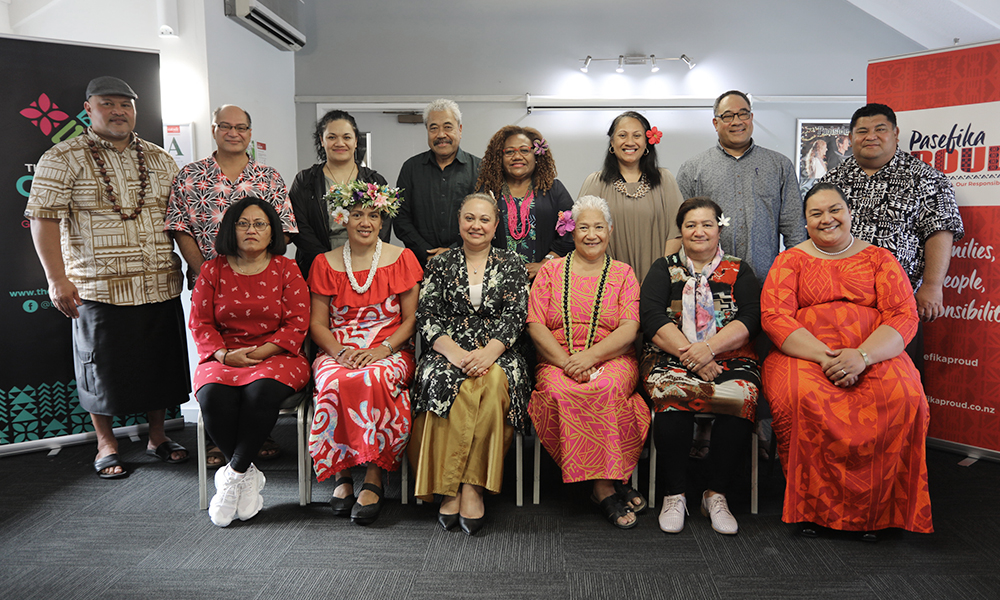
Photo caption: Fa’amatuainu Tino Pereira (back row 4th from left) with Nga Vaka o Kāiga Tapu staff and lead facilitators from Tonga, Kiribati, Niue, Tokelau, Cook Islands, Samoa, Tuvalu and Fiji.
A community-informed and community-led solution to family violence gains unprecedented recognition by the country’s Qualifications Authority.
Delivered by The Cause Collective in partnership with Pacific community facilitators and New Zealand Academic Learning Institute (NZALI), the qualification introduces the only Level 6 Micro Credential for social workers and frontline workers in the health and social care sectors working with Pacific communities to address family violence.
The NZQA accreditation legitimises the Nga Vaka o Kāiga Tapu programme and the application of cultural knowledge combined with best practice evidence to prevent family violence amongst Pacific communities. Capability building programmes for frontline workers, practitioners and Pacific communities who work with Pacific families have been delivered by Nga Vaka o Kāiga Tapu since 2010. A partnership between The Cause Collective and Pasefika Proud, our goal is to help families nurture strong relationships.
The strengths-based training programmes draw on eight ethnic specific cultural frameworks from Samoa, Tonga, the Cook Islands, Niue, Tokelau, Tokelau, Fiji and Kiribati. These frameworks were developed by Pacific communities to minimise and eliminate family violence amongst Pacific families.
Following rigorous scrutiny and consultation, NZQA approved the micro-credential which aligns Nga Vaka o Kāiga Tapu with NZQA’s academic and professional standards.
The specialised training embedded in the Nga Vaka programme fosters a deep understanding and respect for the unique cultural dynamics of these communities, ensuring that service delivery is both respectful and relevant to diverse Pacific families living in New Zealand.
Fa’amatuainu Tino Pereira MNZM, Cultural Lead for Nga Vaka o Kāiga Tapu says it’s critical that a culturally-led solution to preventing and stopping family violence meets rigorous academic standards, when delivering high-quality training for practitioners, employers and communities.
“It ensures that practitioners are equipped with the necessary skills and knowledge to engage effectively with Pacific families while adhering to national standards for education and training,” says Fa’amatuainu.
“As Pasefika wisdom shows, ‘E fofo e le alamea le alamea’ – the toxic fish has its own antidote,” says Fa’amatuainu. “This reflects a victory for Pacific communities who developed the Nga Vaka framework in response to addressing family violence more than 10 years ago.”
The micro-credential, which will be available in October 2024, will be listed on the NZQA website, enhancing its visibility and recognition within the education and social services sectors. The completion of the micro-credential will give participants 20 credits. This listing will facilitate broader dissemination and uptake of the programme, benefiting practitioners, employers, and, most importantly, Pacific families.
